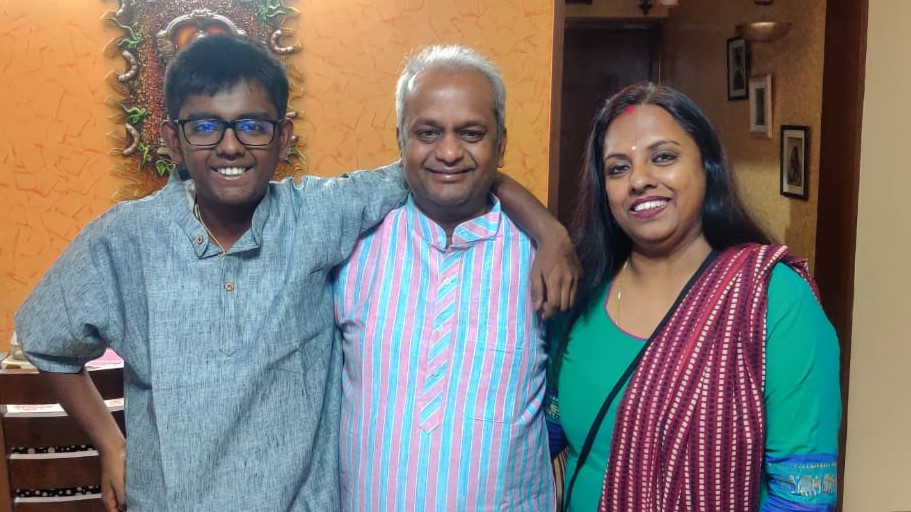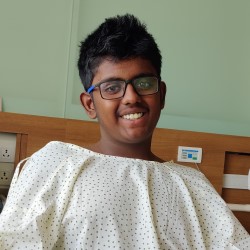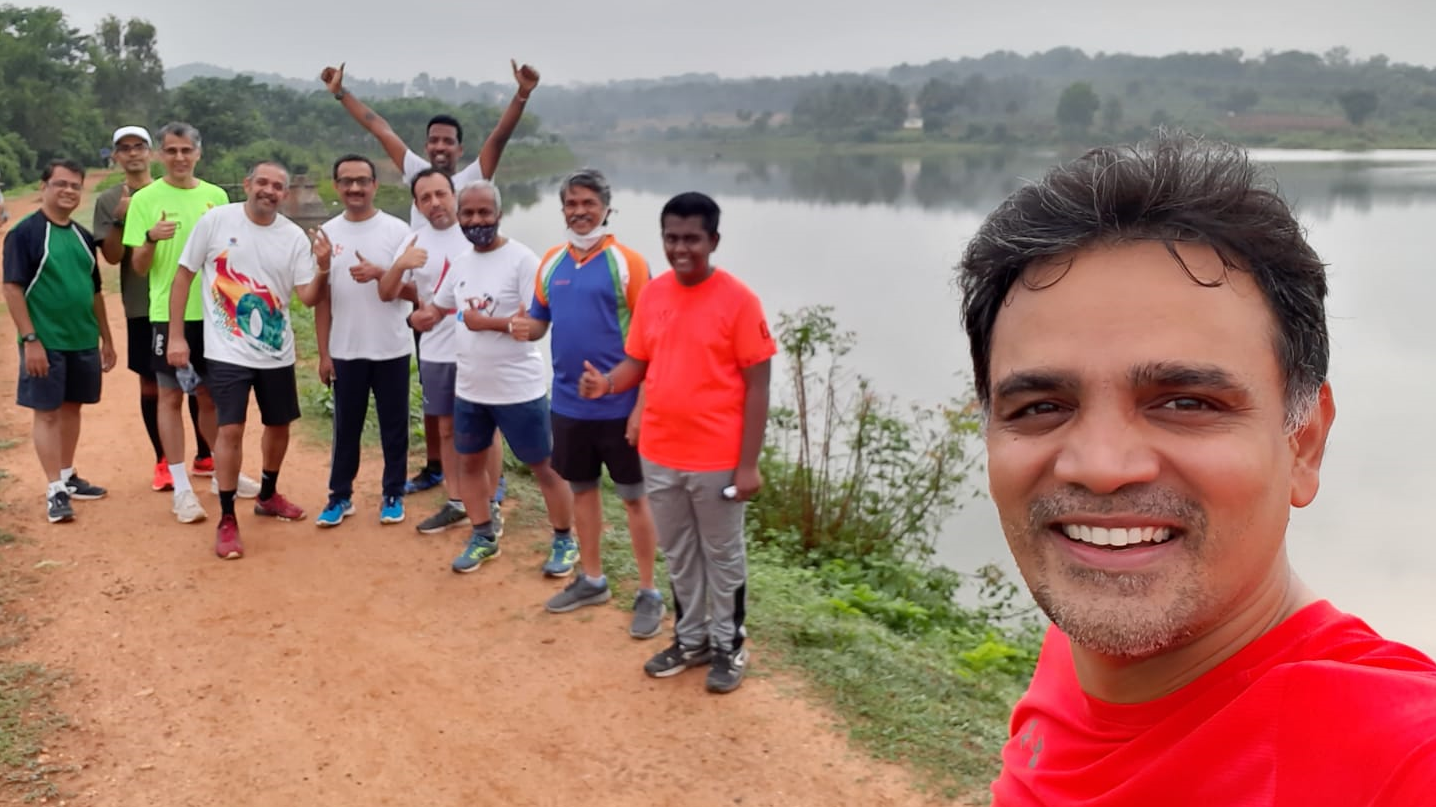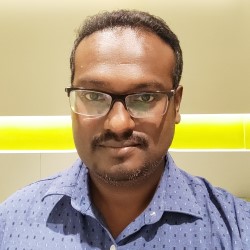Work-life balance matters and we all have strong ideas about what we want from our relationships with our employers. Healthy boundaries, opportunities to learn and advance, wellness benefits—the list goes on.
Everyone has different criteria when it comes to important issues like stress and burnout. But what about when the worst happens suddenly and either your health or your family’s is at stake? It’s not something you can fully prepare for—it’s also when we’re at our most vulnerable and need all the support we can find.
That’s what happened to Head of India Consulting at Oracle, Mukund Moorthy and his wife Shalini, when their son Manas was diagnosed with cancer in 2019. A keen cricketer, Manas had always been extremely active. So, when he first complained of back pain, his parents thought he’d just injured himself while playing.

Worst fears
“Right after Manas’ 16th birthday, he began complaining of unbearable pain in his back,” Shalini shares. “We thought at first it was because he had strained himself from playing too many cricket matches. A doctor prescribed some medicine that made Manas feel better, but shortly after, he came back from school one day, saying he had fallen while playing football because his legs were numb.”
When an MRI showed a growth on his spine, the Moorthys had to weigh the risks of surgery. Deciding to act, the growth was removed, and their worst fears were confirmed after a biopsy: the tumor was cancerous.
Mukund remembers the following months as a blur of bad news while Manas’ health worsened. “The cancer began affecting his nerves. He started losing strength and sensation in his legs. We were devastated and heartbroken. The immediate thought was why me? Why him and why us? “We couldn’t stop crying. Our world had come apart.”
Life-altering

At just 16-years-old, the diagnosis was life-altering for Manas. Sporty, active, and passionate about food, he found himself needing to slow down and adjust to his frightening new situation.
“I went through two-and-a-half-years of struggles, including surgeries and countless chemo sessions and physiotherapy. Even though I’ve had the support of so many people around me, especially my parents, there were many, many bad days, and I didn’t think I would be able to get through any of it,” he reveals. “I suffered discomfort and pain. I was angry and frustrated and scared that I would not walk again.”
Resilience
Despite this incredible challenge, Manas embraced each day to its fullest. “I kept telling myself: “Tomorrow will be a better day that today.” And each day I would see the improvement and feel mentally reassured that this would come to an end.”
In September 2022, after nearly three years of struggle and extraordinary resilience, Manas beat his cancer.
“I finished all my chemo sessions and my constant companion, the chemo port, was removed.”
“It’s hard to describe the feelings, but gratitude is one of the biggest. It’s amazing to be fully able to enjoy all the things I love again—from my favorite dishes, to playing cricket, to cheering on the Oracle Red Bull Racing team and Max Verstappen!”
Manas has even gone on to write a book about his fight with cancer, which he hopes will help other people to find courage while going through tough times in life.
“My Oracle family came through for us”
Work can never take the place of family, but the Moorthy’s story show us how a healthy workplace can help us meet our commitments to the people who matter most. Mukund was astonished at the power of this type of work culture and how his professional friendships blossomed into an incredibly effective support group.

“As our world began falling apart when Manas got sick, my Oracle family came through for us beyond words. My manager told me to drop everything and go be with my son. My team told me not to worry and they would take care of everything. HR even helped me navigate the complexities of insurance related to cancer.”
“And so many people donated blood to help Manas, so many Oracle friends. I don’t know how I can thank everyone enough.”

Culture of togetherness
This kind of coming together in tough times is a familiar story at Oracle. Vijayraj, a senior principal member of technical staff, experienced it firsthand when he contracted a serious bout of COVID-19 during the height of the pandemic.
“I was severely infected with COVID during the second wave, and I had very little hopes of coming out of it,” he shares.
With skyrocketing infection rates and the health system under intense pressure, even finding adequate treatment was a struggle. “I had many challenges like finding a hospital with ventilators as almost all the hospitals were full,” Vijay recalls.
Taking action
That’s when Vijayraj’s colleagues at Oracle Cloud Infrastructure sprang into action to help their friend.
“Everyone in my team took every measure to find hospitals and worked with my family to give support. My managers and peers called my wife to know the status of my health and extended all the help they could.”
Thankfully, Vijayraj’s health improved due to intensive medical treatment and ongoing care after he returned home. “I was on oxygen for two months at home after discharge. Arranging the equipment and helping with reimbursements went smoothly, which helped me to not worry about financial burdens.”
Team strength
It was almost three months before he was able to return to work, but when he was ready, he found that his colleagues were right there with him.
“They put no pressure on me to work harder or longer, and the team helped with my workload—that helped me to recover faster. Team strength always helps individuals shine, that’s something I learned during that time.”
Stronger bonds
Manas, Mukund, and Shalini also share a similar lesson in gratitude and always try to remember what got them through their darkest days.
“I now know that every small thing matters,” Mukund confides. “That we should prioritize health, relationships, and giving and sharing—and that ‘I love you’ are three incredible, powerful words. Shalini, Manas, and I have started saying it a lot more to each other and to the people we care about. Because that’s what makes our bonds even stronger. And that’s how we remind each other of the miracle we are blessed with.”
Do you want to be part of a culture that looks out for each other? Check out our open roles today and come build the future with us.
